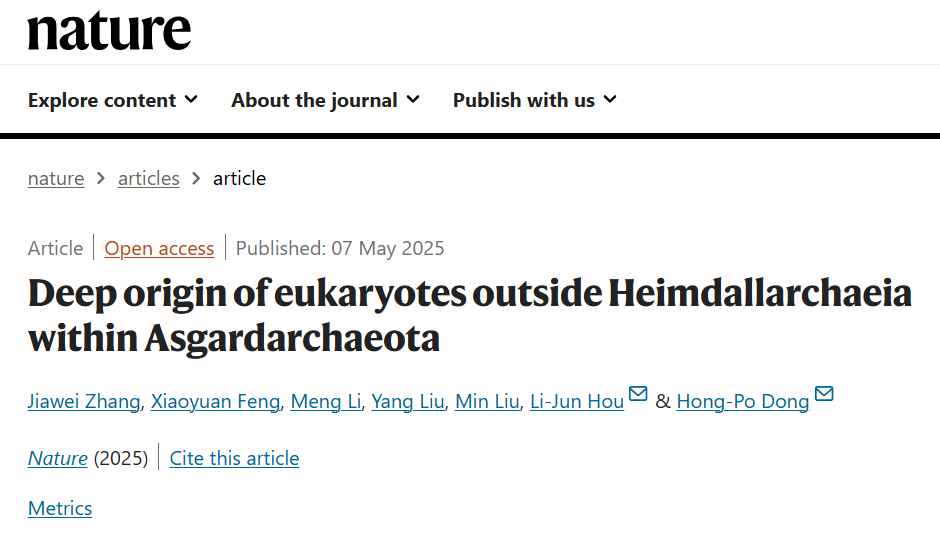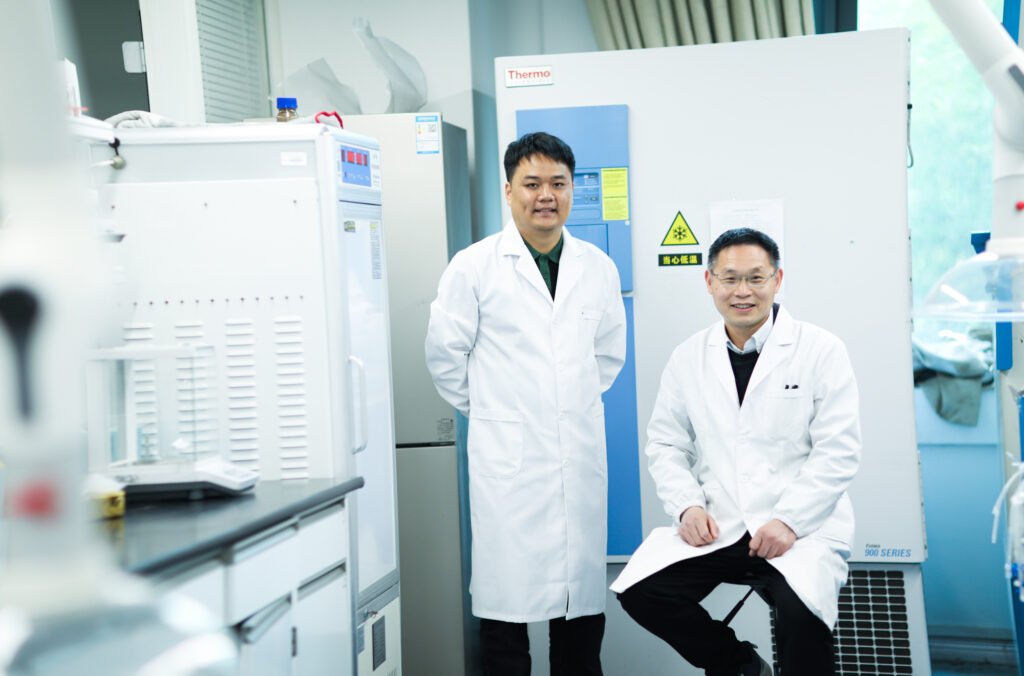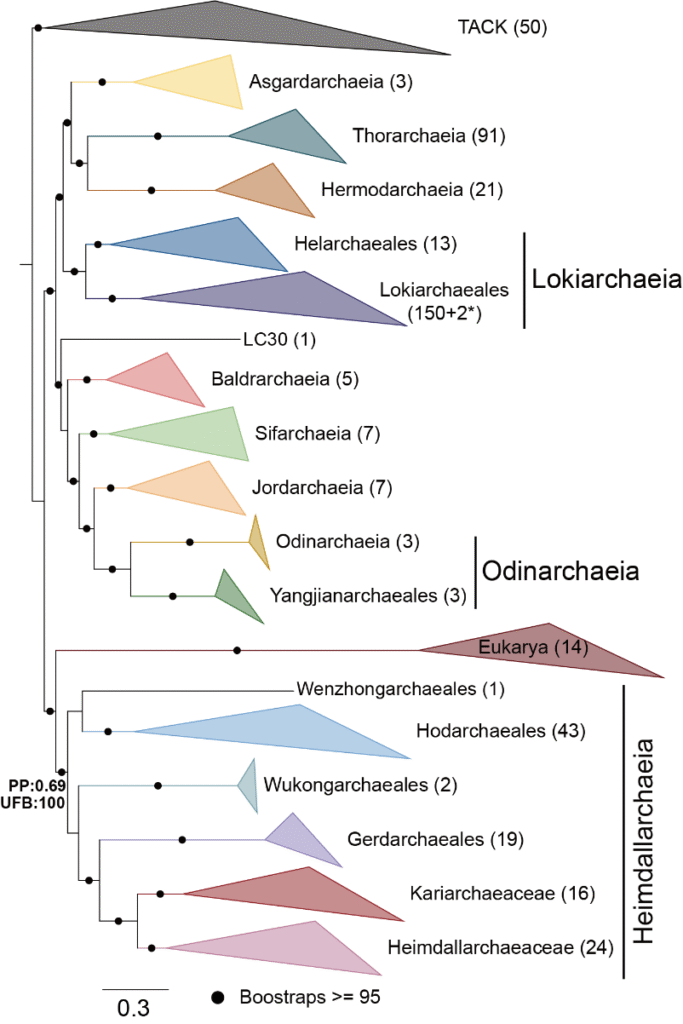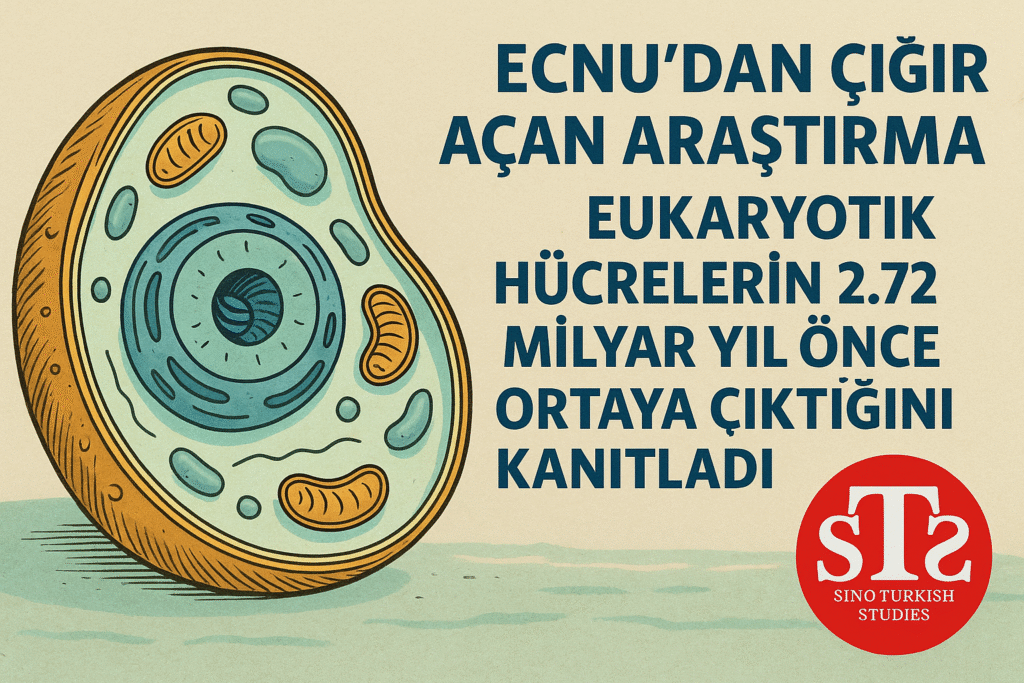A groundbreaking study led by Prof. Dong Hongpo and Prof. Hou Lijun from the State Key Laboratory of Estuarine and Coastal Research at East China Normal University (ECNU) has redefined our understanding of the origin of eukaryotic life. Published on May 7, 2025 in the prestigious journal Nature, the paper provides compelling evidence that eukaryotic cells emerged around 2.72 billion years ago, significantly earlier than previously believed and well before the Great Oxygenation Event.
🔬 Rewriting the Tree of Life: Eukaryotes and Asgard Archaea
The origins of eukaryotes—complex cells with nuclei—have long been debated under two competing theories: the Three-Domain System (Bacteria, Archaea, Eukarya) and the Two-Domain System (Bacteria, Archaea-Eukarya). While prior research suggested that eukaryotes evolved from Heimdallarchaeia, a subgroup within Asgard archaea, ECNU’s study proposes a more precise evolutionary position: eukaryotes are a sister group to Heimdallarchaeia, not descendants of a shared ancestor with Hodarchaeales.
This evolutionary placement significantly shifts our perspective on early life, suggesting that the precursors to modern complex cells evolved in low-oxygen environments long before atmospheric oxygen became abundant.

🧬 Six Years of Sampling from China’s Coastal Wetlands
The ECNU team conducted six years of intensive sediment sampling in China’s mangrove forests and estuarine salt marshes, using these unique ecosystems as a natural laboratory to explore early microbial evolution. By employing metagenomic sequencing and computational biology, they uncovered novel archaeal genomes, substantially expanding the known diversity of Asgard archaea.
Because archaea are scarce and unevenly distributed, especially in non-extreme environments, such discoveries are rare and scientifically valuable. The team’s success highlights the power of long-term ecological sampling paired with high-throughput bioinformatics.

🧪 Methodology and Findings
Using maximum likelihood and Bayesian inference, the researchers constructed high-resolution phylogenetic trees, revealing that eukaryotes likely diverged before the diversification of Heimdallarchaeia. This timeline pushes back the origin of complex life by hundreds of millions of years.
The study also emphasizes that future research must isolate and enrich Heimdallarchaeia strains to better understand their ecophysiology, metabolic functions, and their potential role in eukaryogenesis.
🧗♂️ Fieldwork Challenges and Scientific Dedication
Team member Zhang Jiawei, the sole first author and a PhD candidate in marine biology at ECNU, recalled the challenges of nighttime sampling in mosquito-filled mangrove swamps, often getting lost or covered in mud. Despite the hardship, he noted:
“Knowing these ordinary sediments might hold the secret to the origin of life made it all worthwhile.”

🧠 Why This Research Matters
Understanding how eukaryotic cells originated has profound implications for evolutionary biology, biodiversity, disease research, and even astrobiology. This study sets a foundation for new explorations into how life transitioned from simple to complex and how microbial ancestors may still hold answers to our evolutionary past.

📘 Study Details
📄 Title: Origin of eukaryotes traced to a sister group of Heimdallarchaeia
📚 Published in: Nature, May 7, 2025
🔗 DOI: https://www.nature.com/articles/s41586-025-08955-7
🌐 University Source: ECNU Official News
👨🔬 First Author: Zhang Jiawei (PhD student, ECNU)
🧬 Corresponding Authors: Prof. Dong Hongpo (lead), Prof. Hou Lijun (ECNU)
🤝 Co-authors: Prof. Liu Min (ECNU), Prof. Li Meng’s team (Shenzhen University)
🔬 Affiliation: State Key Laboratory of Estuarine and Coastal Research, ECNU
🎯 Funding Support: China’s National Key R&D Program, National Natural Science Foundation of China
Keywords:
- origin of eukaryotic cells
- eukaryotes 2.72 billion years ago
- ECNU Nature publication
- Heimdallarchaeia sister group
- evolutionary biology breakthrough
- archaeal biodiversity
- mangrove sediment metagenomics
- Asgard archaea evolution
- early life on Earth
- Great Oxygenation Event precursors
ECNU study published in Nature traces eukaryotic origins to 2.72 billion years ago, reshaping our understanding of life’s evolutionary history.
Abroad Africa AI Beijing Belt & Road BLCU BRICS China chinese CPC CSC Culture Economy education EU Guizhou Kültür Langauge movie Multipolarity Russia scholarship science Shanghai Sino Sino Turkish Sino Turkish Sino Turkish Sino Turkish Sino Turkish Studies Sino Turkish Studies Sino Turkish Studies Sino Turkish Studies space Syria Taiwan Tariff trump Turkiye Türkiye University USA Xinjiang ZJUT Çin





